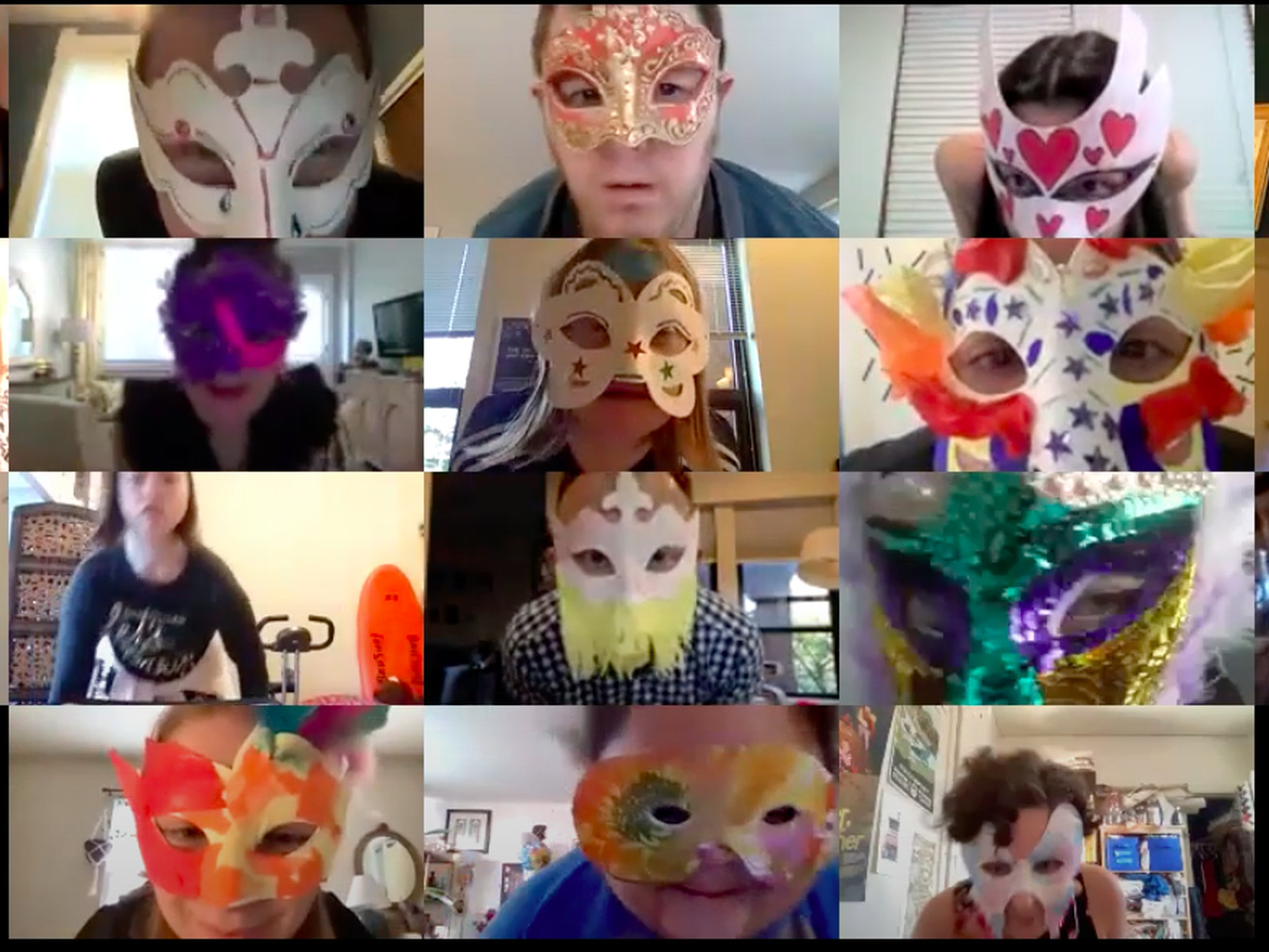
The Chicago non-profit ensemble creates theater and film for, with and by individuals with Down syndrome and other developmental disabilities.
When COVID-19 forced Chicago theater to go dark, the A.B.L.E. Ensemble was one of the first to forge forward into the brave new world of digital programming. Not only did the plucky theater survive, in the face of the pandemic — their artistry thrived.
“You know I feel really humbled honestly because I think it’s been one of our strongest years and kind of our strongest seasons. Especially working with individuals with intellectual and developmental disabilities, any sort of social outlet is so important, especially for adults,” said A.B.L.E. executive director Katie Yohe, of Artists Breaking Limits & Expectations (A.B.L.E.). The Chicago non-profit ensemble founded in 2016 that “creates theater and film for, with, and by individuals with Down syndrome and other developmental disabilities,” according to its website.
“The mental health toll of the pandemic was really strong for them so we saw a huge demand for programs and services, so we’ve been able to add workshops, add ensembles, and kind of keep pushing ourselves to do more just to make sure there was a place for our community to go.”
Though some theatermakers have groused over the limitations of Zoom, A.B.L.E. stepped up to the challenge. “I think for the folks in the creative arts, it was sort of the ultimate test of all of our theatermaking skills, you know,” Yohe said. “It’s all of the improvisation skills that you’ve acquired, and your willingness to be adaptable, and say yes and keep trying, and work with your team and work with your community.”
And with that embrace of change came unexpected rewards for the actors. “I think having a little more control over their environment, being able to control the volume of class, the lighting in their room, and being in a comfortable familiar space, I think has helped some of our actors to become a lot stronger working virtually than they may have done in person.”
Their talents will be showcased in “Romeo and Juliet Remix,” a new take on the Shakespeare classic that combines the original work with original monologues and songs created by the cast.
“The team working on ‘Romeo and Juliet Remix’ is Zooming in from about 10 different states... we have many actors with Down syndrome, we also have actors who are autistic, we have some participants with cerebral palsy, and then some with a general developmental delay,” Yohe said. “So currently in our ensembles, or at least those folks working on ‘Romeo and Juliet Remix,’ that’s 38 actors ranging in age from ages 15 up to 37.”
A.B.L.E. Ensemble allows actors a large measure of agency in their roles. Yohe delves into the classical adaptation creative process, facilitated in conjunction with their longtime partner, Chicago Shakespeare Theater.
“It’s a way to give our ensemble ownership over some classical pieces that they maybe would have been excluded from, in traditional situations. It’s certainly rare to see even one actor with a disability in a Shakespeare show, let alone the entire cast,” she said.
/cdn.vox-cdn.com/uploads/chorus_asset/file/22665651/The_Friday_ensemble_takes_a_laughing_potion_in_the_Apothecary_Shop.png) Courtesy A.B.L.E.
Courtesy A.B.L.E.
“We currently have four separate ensembles and each one has up to 10 actors with varying disabilities and varying ages. We spent the first three or four weeks or so really digging into the story and the characters... A lot of people came in obviously already knowing this story, it’s such a part of the zeitgeist in that way even though it’s 400 years old. ... We asked each actor what they most wanted to do, if there was a character or moment in the story they felt really connected to; if there was a special skill that they wanted to show off. Did they want to sing? Did they want to dance? Did they want to really do some good meaty acting work or comedic work? And then, if they wanted to focus on Shakespearean text, or if they wanted to devise something new.”
The end result is “Romeo and Juliet” like you’ve never seen it before, with 11 different Juliettes and 9 different Romeos, broken down into 22 different scenes. With the support of teaching artists and volunteers, 70 people are onscreen total, and everything is filmed in the actors’ homes and edited together for one epic tale.
And speaking of film, A.B.L.E. Ensemble also offers referrals for those seeking disabled film and theater actors for hire, as well as professional development classes for those seeking to learn how to work creatively and respectfully with the disabled community.
“I mean if you look at the We See You White American Theater movement, as well as all the changes that we’re trying to talk about, [they] are ultimately going to cost these producers more money, and they have to just pony up. You know you can’t just pay lip service to the cause; you’ve got to actually accept that is going to be part of your budget. It’s got to be a commitment. It’s got to be a financial commitment and not just an emotional commitment.”
from Chicago Sun-Times - All https://ift.tt/3gB6vI6

No comments:
Post a Comment